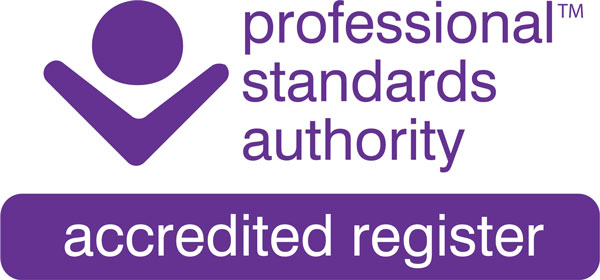Inside our ethics committee
Owen Davis, co-chair of the HGI’s Registration and Professional Standards Committee (RPSC), shares information drawn from the range of work undertaken which will be useful for practitioners to keep in mind.
THE Registration and Professional Standards Committee (RPSC) fulfils a number of functions – we help with enquiries from HG therapists on the ethical issues they face in their practice, as well as monitoring the registration of members and dealing with complaints. Therapists often contact us with ethical dilemmas or concerns arising from their casework. These may be about whether to continue therapy with a particular client, or how to deal with, for example, an inappropriate referral made to the therapist as part of their work at an organisation. In some cases, the therapist may just want to talk through their own thinking and check that what they are planning to do fits with the HG Code of Ethics and Professional Conduct. In others, a difficult situation may have arisen as a result of conflicts between the needs of clients and those of employers or referring agencies.
We always recommend discussion of ongoing casework with supervisors; one of the roles of the supervisor is to help therapists maintain a balanced overview of their practice. Peer groups are another useful source of support. However, therapists may have queries about process and/or specific ethical points where having another perspective on a problem can help to form a rounded view. Committee members often discuss difficult issues raised by therapists before responding. In some instances, we may check first with official bodies such as the Professional Standards Authority or the Information Commissioner’s Office, for example on regulatory matters.
What is important is that HG members feel that they can contact us and discuss their concerns, rather than carrying on in isolation and perhaps going down an ill-advised path, thus making an already difficult situation worse. It is an area where prevention is definitely better than cure; often matters can be dealt with at an early stage before developing into something more complex and potentially more serious for all concerned.
Although as HG therapists we are well trained and equipped to help clients meet their needs and use their resources effectively, we are human and, as such, are prone to error. Looking at the complaints received at the RPSC over time, some clearly can be dealt with informally (always in our view preferable). Some are the result of an unintentional error on the part of the therapist, such as not listening carefully enough to the client – perhaps, for example, not noting a client’s strongly atheistic world view and later using religious language or imagery during guided imagery.
Things can go wrong in therapy despite best intentions on our part, especially if we are not on top of our game, perhaps through working too hard, feeling stress as a result of events in our own lives, or pattern matching to an experience of our own, without being aware of it. (All of us, of course, are under extra stress at the moment, as we deal with the Covid-19 situation.) Even if complaints arising from such situations go down the formal route, they can often be resolved in a fairly straightforward way, if the therapist is willing to recognise the impact on the client, offer an apology and agree to engage in some reflection during supervision or undertake additional training. Such an outcome may even have a positive benefit in serving to strengthen the therapist’s practice in the future.
More serious complaints
Given the number of sessions of HG therapy carried out in any one year (possibly in the tens of thousands), we receive relatively few complaints of a more serious nature. When we do, these can be complex and difficult to deal with. Some concern alleged boundary transgressions, such as therapists using their privileged position for personal advantage (see section A.17.2 of the HGI Code of Conduct). Others concern instances where roles are confused – for example, when the therapist and the client are known to each other in another context, perhaps as teacher and student, supervisor and trainee or as business associates. Therapists should consider very carefully the possible ramifications before agreeing to take on a client in such circumstances. It is also possible that some presenting problems are beyond the therapist’s level of training and experience, in which case it may be better to be open about this and refer a client on, rather than struggling to address their needs and getting out of one’s depth.
Conflict of needs
In the HGI online ethics course, the point is made that “ethical dilemmas arise when circumstances are preventing someone’s physical and emotional needs from being fairly met, sometimes because they are in conflict with another individual or organisation”. This can particularly be the case when couples come for therapy, and therapists should proceed with some caution; conflicting needs and goals can cause difficult situations to develop, especially when one party feels their perspective has not been given due recognition by the therapist. Also, when strong emotions are aroused, language used by a therapist may be misinterpreted by one or both parties. For instance, in describing emotional needs, a therapist might refer to “our need to feel in control” and one partner misinterprets this as the therapist implying that he or she is ‘controlling’. This may be completely unintentional on the part of the therapist (and can arise from our own desire to help and be effective). It can also be a result of not seeing the bigger picture, in the sense of not fully considering the possible impact on the client or others of what we are saying or advising.
Most of us are able to maintain a sufficient level of self-awareness and reflective practice to avoid the more obvious pitfalls, which is why one of our most important ethical considerations is that therapists should have sufficient spare capacity, and not be overwhelmed either by the needs of the client or our own emotional needs. These and other ethical issues are all addressed in the online ethics course, with which many readers of this journal will already be familiar. The main message from the examples and points raised above is: if in doubt, don’t go it alone – discuss with your supervisor; check with the Code of Ethics and Professional Conduct on the HGI website; and don’t hesitate to contact the RPSC.
Members’ own websites
There is already guidance on the HGI website about links to individual therapists’ websites, but we still come across instances where the guidance is not being followed. We understand that many HG practitioners have undergone training or have experience in other modalities. They may be part of a team operating from a clinic that offers a range of services. If a website offers HG therapy alongside other services, then the link from the register to the individual member’s website should go directly to a page on that website which deals exclusively with the human givens. It is quite acceptable to offer other services, such as specialist massage techniques, for example, but it must be made clear that, if a therapist is offering human givens therapy and that is what the client is seeking, then that is what the client gets.
RPSC – call for people to serve on the committee
The work of the RPSC is largely voluntary, apart from the paid position of the co-ordinator, who manages the day-to-day functions of the committee. We are enormously grateful to the registered members and lay people who freely give their time to adjudicate on complaints and occasionally to serve on appeal panels.
It is essential, for the protection of the public and the reputation of the HGI, that we thoroughly investigate clients’ concerns, but it is also important that therapists are treated fairly and protected from spurious or vexatious complaints.
Sometimes RPSC members are not available for very good reasons or find that other work and family commitments mean that they can no longer continue to serve on the committee. So, we are always looking for new members to take on some of the work. (We are grateful to those who responded to our recent e-request for help and would welcome further volunteers.)
Adjudication is usually carried out by two HG therapist members of the RPSC, plus one lay member. It is often challenging to consider a complaint, but at the same time it is interesting and stimulating to work in this way with colleagues. We also have a pool of volunteers, separate from the main committee, who are willing to consider appeals. As with adjudication, appeals panels are composed of two experienced HG therapists and one lay person.
There is no particular qualification required for taking on one of these roles but it is helpful if people have some background in the area of administration and ideally some knowledge of handling complaints. In practice, we have found that HG therapists bring a rich and varied range of background experience to work of this nature, and that the knowledge of individual members of panels complements what others bring. Similarly, lay members bring an objectivity and perspective that helps to moderate decision-making.
We are planning to give more training to panel members and are also willing to discuss in more detail what the work involves. If you are interested in one of these roles, or know someone who would be willing to serve as a lay member, please get in touch with the HGI office.
Insurance
A reminder to members that insurance companies will only pay for therapy under the terms of health insurance if the therapy is conducted by one of their recognised providers. It is not always evident at a first session or when negotiating therapy that the client wishes to claim for sessions on health insurance. One way to cover for this would be to add a few lines to the “Information for clients” document, which we recommend that you supply to new clients (template available from HG Supervisors), advising that it is the client’s responsibility to check with their insurance company whether they can be reimbursed for the cost of HG therapy, if they are seeking this.
Charging in advance
A reminder to all practising therapists that charging in advance for a contracted number of sessions is in breach of our code of ethics and professional practice. Some non-HG therapists may expect to offer a fixed number of sessions for certain treatments, such as smoking cessation, and there are clinics which similarly advertise a set course of treatment. However, HG therapists need to remember that they should always take as few sessions as necessary to treat clients and, while it is fine, if asked, to say that they can sometimes treat certain conditions in approximately so many sessions, they should not set up that expectation by booking that number of sessions in advance. Section A.14.5 of the HGI Code of Conduct makes this clear: “Practitioners should never advertise or offer financial rewards or incentives to clients, such as discounts for a series of sessions. They should avoid any possible confusion or false expectations about therapy being a ‘course of treatment’, by neither entering into any kind of contract to that effect nor by accepting payment in advance.”

Owen Davis is co-chair of the HGI’s Registration and Professional Standards Committee (RPSC)

This article first appeared in the Human Givens Journal – Vol 27, No. 1: 2020
Back issues available – each issue of the HG Journal is jam-packed with thought-provoking articles, interviews, case histories, news, research findings, book reviews and more, with no advertising. If you find the articles, case histories and interviews on this website helpful, and would like to support the human givens approach, you can buy a back issue today, they’re available in PDF and print format.

